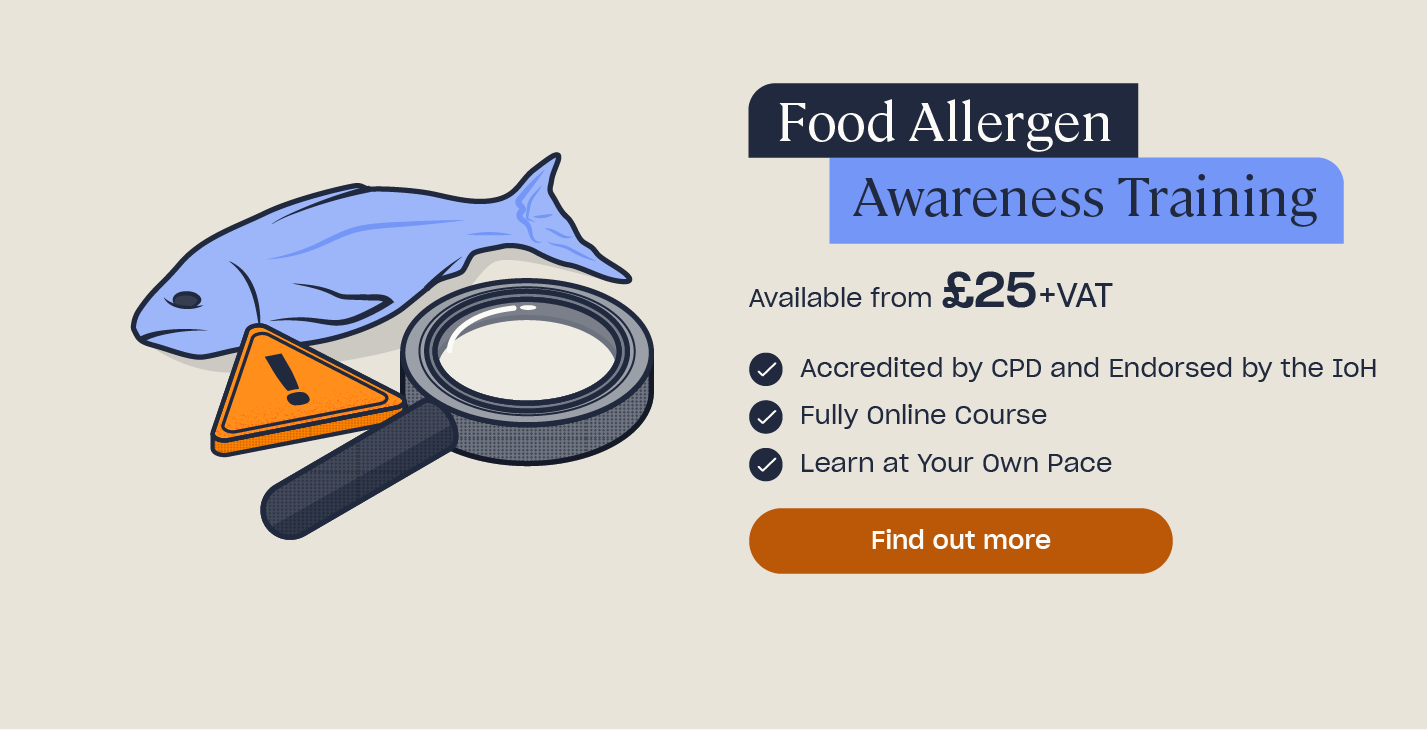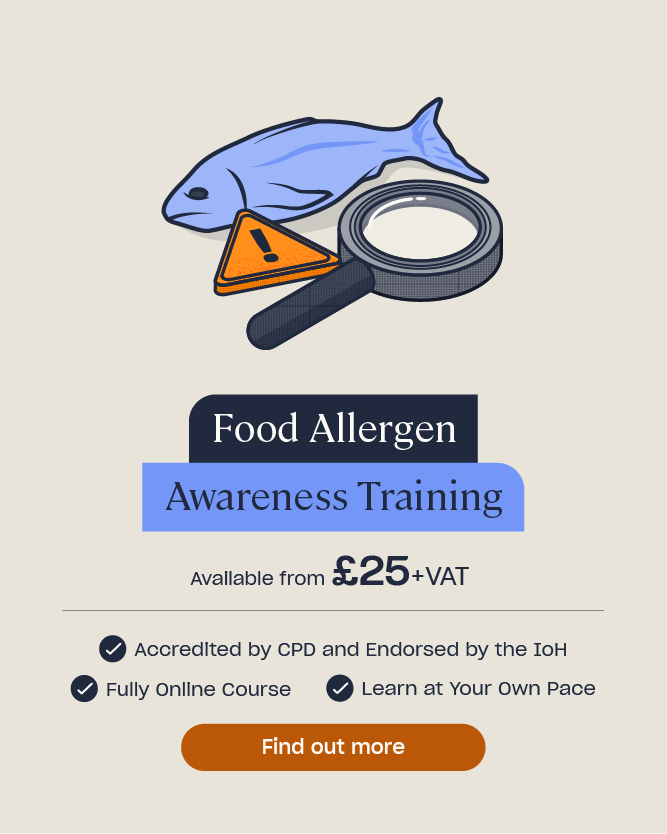Managing Food Allergies in the Workplace
To prevent people with food allergies from suffering dangerous reactions, controlling allergens at work is crucial. Many symptoms are life-threatening without proper treatment – around ten people in the UK die from food allergies every year. In fact, an estimated 1-2% of adults have a food allergy, which equals around 2 million people.
It’s therefore likely that someone in your workplace has an allergy, and without caution you could put them at serious risk of a reaction. You should understand how to minimise allergy risks and prioritise managing food allergies in the workplace to keep them safe.
Common Food Allergies
People can have allergies to any food, but the Food Standards Agency lists 14 named allergens that are most common. Eight of these cause around 90% of allergic reactions (known as the big 8 food allergies). You can download our free food allergens poster displaying the 14 names allergens, here.

The 14 most common food allergies are:
- Celery and celeriac.
- Cereals containing gluten, e.g. wheat.
- Crustaceans, such as lobster and prawns.
- Eggs.
- Fish.
- Lupin, which you can find in certain baked goods.
- Molluscs, including mussels, oysters, and squid.
- Milk.
- Mustard.
- Nuts, e.g. walnuts, hazelnuts, cashews, and pistachios.
- Peanuts (despite the name, these are legumes, not nuts).
- Sesame seeds.
- Soy beans.
- Sulphur dioxide and sulphites. Sulphur dioxide is usually present in preservatives, while sulphites exist in all sorts of food, including dried fruits and fruit juices.
These allergens can cause a range of symptoms. Mild reactions result in rashes and sneezing, while extreme symptoms include swelling of the face and difficulty breathing. A severe reaction can cause unconsciousness and put the person’s life at risk.
Managing Food Allergies in the Workplace
Often, all it takes is a tiny amount of an allergen to trigger extreme symptoms, such as a peanut crumb or one sesame seed. Accommodating an allergic employee in the workplace is therefore crucial. You need to follow safe steps to prevent exposure or contamination of their food, and know what to do if someone does have a reaction.

The following adjustments help prevent allergic reactions at work:
- If you have an allergy, tell people. The law doesn’t require you to do so, but if you need accommodations then you’ll have to disclose it. Provide as much information as possible so people recognise the importance of suitable adjustments.
- Check the ingredients of your food. The law requires food labels to highlight allergens in bold or with a warning so you can easily identify them. If someone at work has an allergy, you must keep food containing the allergen away from them and prevent cross-contamination. Use different utensils and avoid handling their food after yours.
- Separate storage and utensils. Residue on forks and plates, even after cleaning, can trigger a reaction, so people with allergies should have their own dinnerware and chopping boards. They should clean and store their food and utensils in their own cupboard or fridge shelf.
- Flexibility. Workplaces should allow people with allergies time off to attend allergy-related appointments. They should recognise that people may need unexpected sick days off if they suffer a reaction and need time to recover.
- Social events should accommodate allergies. For example, if colleagues prepare cakes to share, they should either avoid using ingredients that certain people are allergic to, or use warning labels. If workers plan a lunch out, they should go somewhere that provides proper allergen information on the menu.
- First aiders should know how to respond to reactions. They should know where to find and how to administer the person’s epipen or auto injector. Ideally, even co-workers will know how to help in an emergency.

As each individual’s allergy differs, it’s important to ask them directly about their needs. Being understanding and supportive helps people with allergies feel safe at work and allows everyone to enjoy their food free of risks.
What to Read Next:
- What Are ‘The Big 8’ Food Allergies?
- Food Allergen Labels: Free Download and Advice
- What are the Four Types of Food Contamination?
- Food Allergies: Myth Vs. Fact
- Food Allergen Awareness Training







